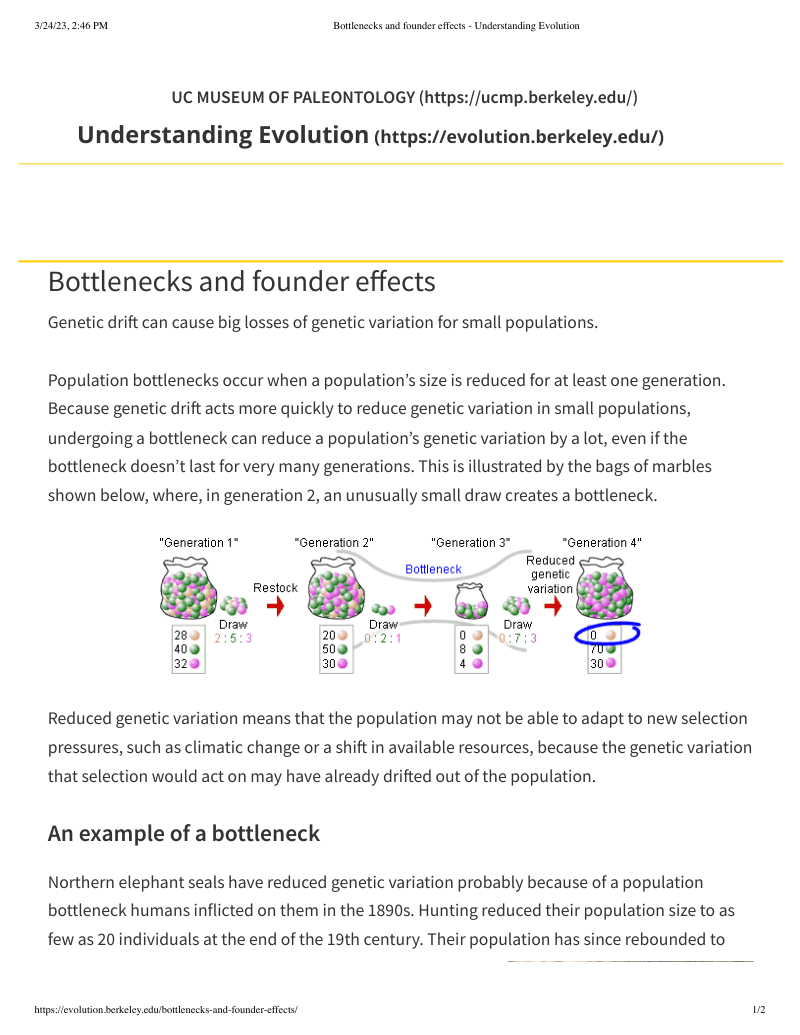UC Berkeley Museum of Paleontology describes the founder effect and genetic bottlenecks.
- Type
- Website
- Source
- University of California-Berkeley Non-LDS
- Hearsay
- Direct
- Reference
"Bottlenecks and Founder Effects," Understanding Evolution, University of California—Berkeley, accessed March 23, 2023
- Scribe/Publisher
- University of California-Berkeley
- People
- University of California-Berkeley
- Audience
- Reading Public
- Transcription
Bottlenecks and founder effects
Genetic drift can cause big losses of genetic variation for small populations.
Population bottlenecks occur when a population’s size is reduced for at least one generation. Because genetic drift acts more quickly to reduce genetic variation in small populations, undergoing a bottleneck can reduce a population’s genetic variation by a lot, even if the bottleneck doesn’t last for very many generations. This is illustrated by the bags of marbles shown below, where, in generation 2, an unusually small draw creates a bottleneck.
Reduced genetic variation means that the population may not be able to adapt to new selection pressures, such as climatic change or a shift in available resources, because the genetic variation that selection would act on may have already drifted out of the population.
An example of a bottleneck
Northern elephant seals have reduced genetic variation probably because of a population bottleneck humans inflicted on them in the 1890s. Hunting reduced their population size to as few as 20 individuals at the end of the 19th century. Their population has since rebounded to over 30,000 — but their genes still carry the marks of this bottleneck: they have much less genetic variation than a population of southern elephant seals that was not so intensely hunted.
Founder effects
A founder effect occurs when a new colony is started by a few members of the original population. This small population size means that the colony may have:
reduced genetic variation from the original population.
a non-random sample of the genes in the original population.
For example, the Afrikaner population of Dutch settlers in South Africa is descended mainly from a few colonists. Today, the Afrikaner population has an unusually high frequency of the gene that causes Huntington’s disease, because those original Dutch colonists just happened to carry that gene with unusually high frequency. This effect is easy to recognize in genetic diseases, but of course, the frequencies of all sorts of genes are affected by founder events.
- Citations in Mormonr Qnas
The B. H. Roberts Foundation is not owned by, operated by, or affiliated with the Church of Jesus Christ of Latter-day Saints.

